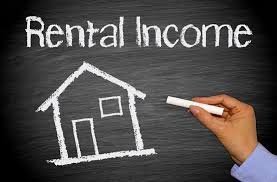Investing in a rental property: The pros and cons
Posted by Steve Harmer on Thursday, March 2nd, 2017 at 1:42pm.
 There are a number of advantages and disadvantages to buying a property and then renting it out. Talk to an accountant, lawyer, mortgage broker or other financial expert about how it may affect your taxes and financial situation. As always use a great local Realtor to help you make the right decision in locating a property that would work for the purposes of renting out and making sure the zoning is correct.
There are a number of advantages and disadvantages to buying a property and then renting it out. Talk to an accountant, lawyer, mortgage broker or other financial expert about how it may affect your taxes and financial situation. As always use a great local Realtor to help you make the right decision in locating a property that would work for the purposes of renting out and making sure the zoning is correct.
3 key advantages
1. You pay less tax
You can deduct certain expenses from your income – reducing the taxes you owe. The list includes:
- mortgage interest
- property taxes
- insurance
- maintenance/upgrades
- property management
- utility bills (if you include them in the rent).
2. You may be able to deduct losses for tax purposes
If your expenses exceed your rental income, you may be able to deduct that loss from any other sources of income you have. This could reduce your total tax bill.
3. You get a regular monthly income
Other kinds of investments may pay out less often or income may be less predictable.
3 key disadvantages
1. You take on the responsibilities and challenges of a landlord
Rental units need repair – sometimes on an emergency basis. Dealing with tenants can be challenging, especially if they don’t pay their rent on time and cash flow is tight. If you hire a property manager to take care of these things for you, their salary is an added cost.
2. It may be difficult and costly to sell the property later
Real estate is not a liquid investment. That means it can take time to sell, depending on market conditions. It can also be costly to sell due to real estate and legal fees.
3. It may be difficult to finance the purchase
You must have a down payment of at least 20% when you buy a second property. You may need a mortgage. And, you will have high monthly expenses to cover when you own a building. Of course, you hope the income you receive from your tenants will cover this.
© http://www.getsmarteraboutmoney.ca/en/managing-your-money/investing/real-estate/Pages/Investing-in-a-rental-property-The-pros-and-cons.aspx#.WLiRuH9wt0E


